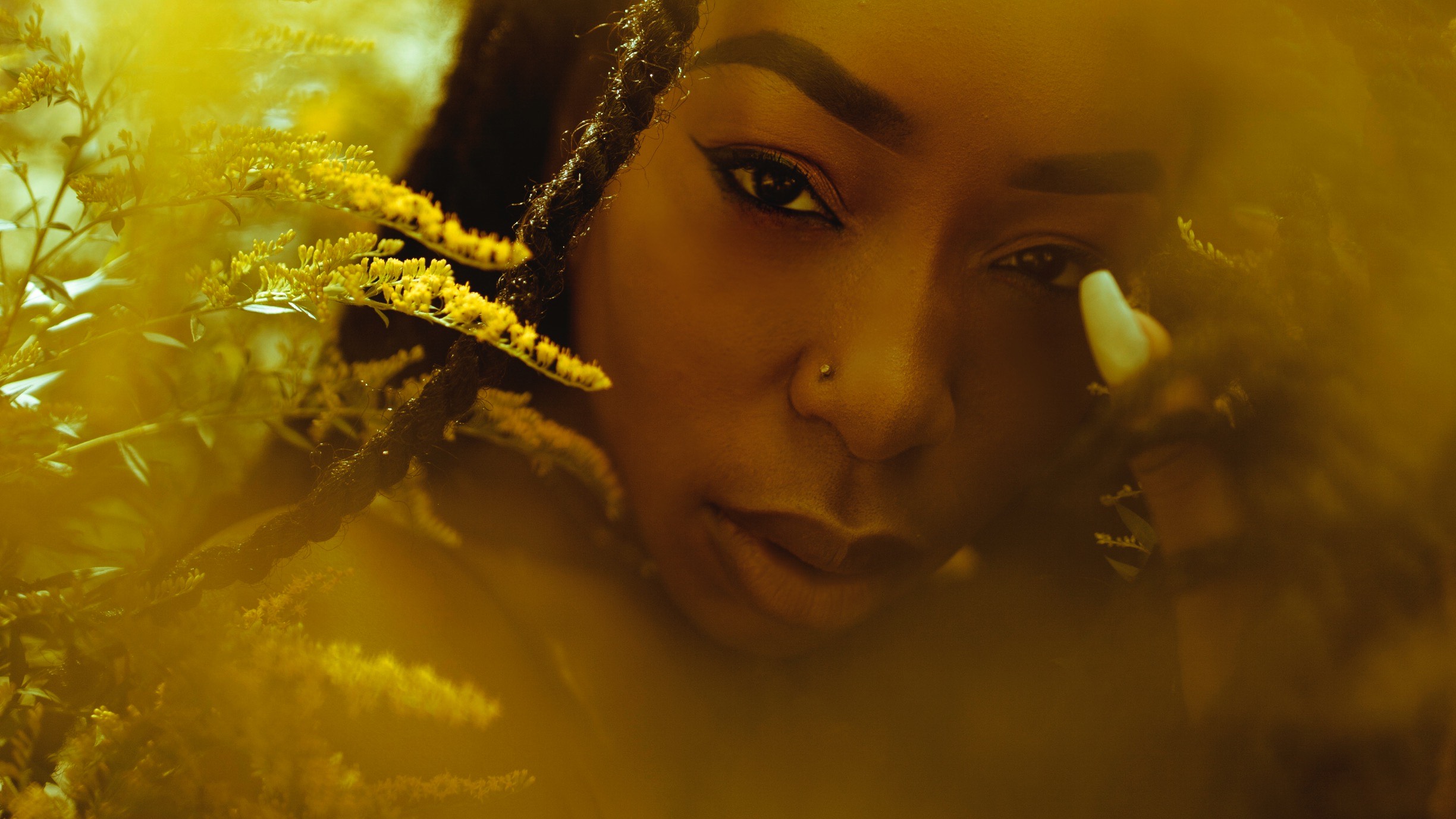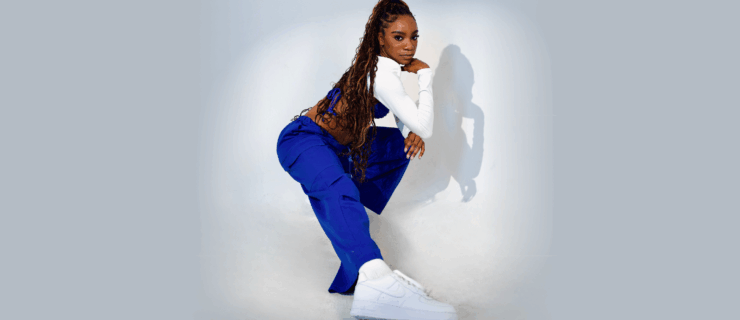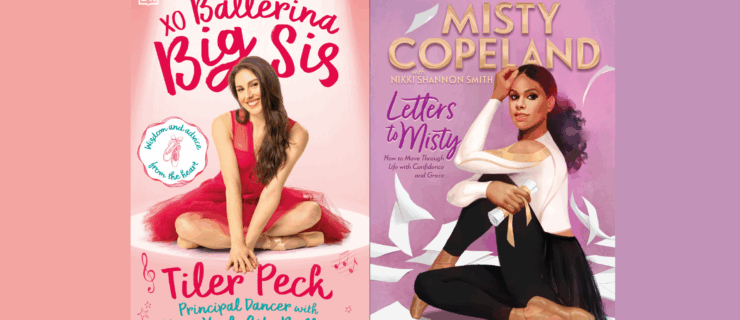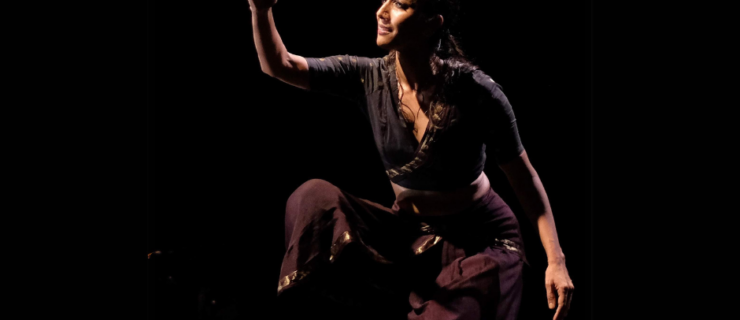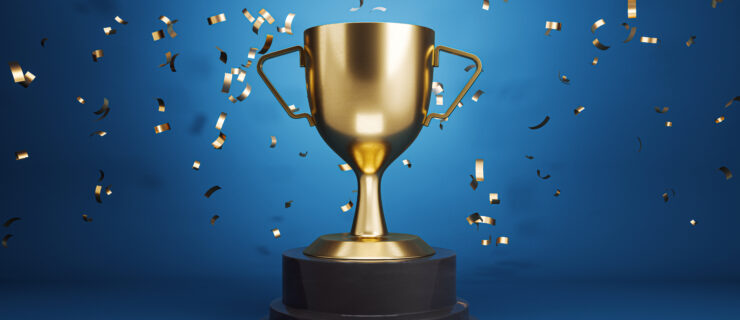Amanda-May Wilson on Magical Mentors and Navigating Intersectionality in the Commercial Dance World
Like most of us, Amanda-May Wilson grew up dancing for fun all the time. Born and raised in Toronto, Canada, most of her dancing was done through sneaking into the rehearsals of her childhood church mentors. But she also spent much of her time obsessing over the world’s greatest superstars on music videos and live shows. Artists like Janet and Michael Jackson, Aaliyah, Missy Elliot, and Ciara all helped pave the way for Wilson’s fascination with the dance industry. “If they were performing live, I was always watching it, studying it, learning choreography from videos, and teaching it to my friends. Over time, that just evolved,” she says. “Growing up, my family didn’t have a whole lot of money to put me in classes, so I really depended on watching things online and teaching them to myself. That was my training for a long time.”
Despite what seemed like a blockage from the commercial dance world, no obstacle could stop opportunities from aligning so that Wilson could experience success as the professional dance artist and choreographer that she is today. She shared her story with Dance Spirit about her experiences as a Black dancer, the value of her mentors, her perspective on representation, and the wisdom she’s gained from her unconventional dance journey.
From dancer to choreographer
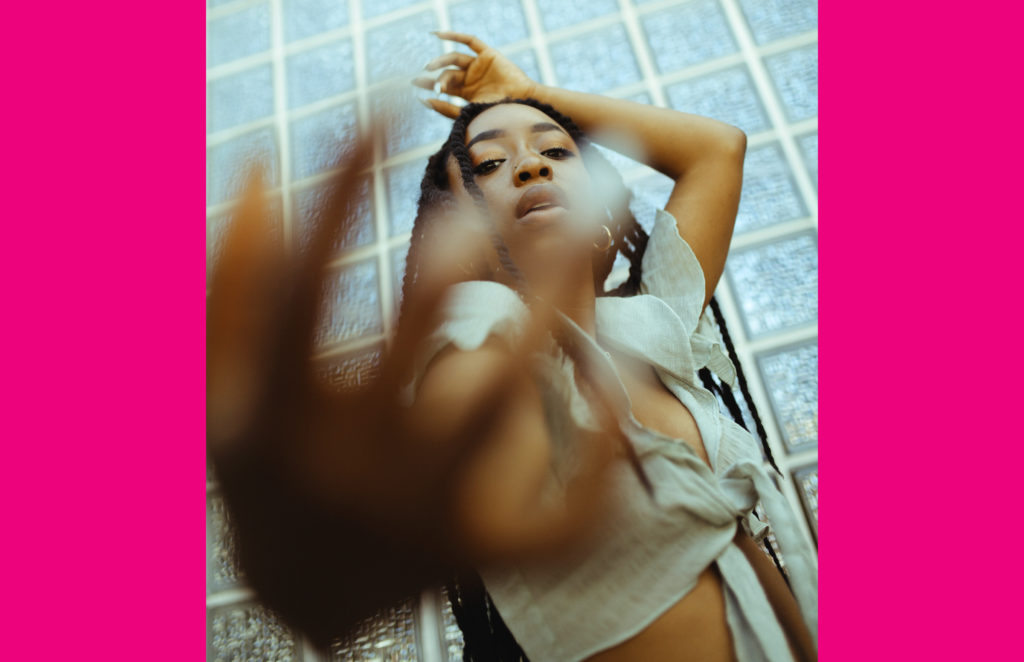
“Working full-time on TV and film, I now work predominantly as a dancer, but as of late, I’ve been doing a lot more choreography. Growing up—especially being part of such a musical family—I knew that I wanted to create and be an artist, but I never consciously thought about being a choreographer, even though I was always making up and learning dances.”
On the magical mentors that helped shape her
“At eight years old, I met my first dance teachers and mentors, Greg and Charlene Hines, in church. They used to be professional dancers themselves, and, at the time, they were kind of phasing themselves out of the industry and starting their own dance initiative in church that grew into the studio they have now: DOAHL Dance Academy. I’d sneak into their rehearsals and learn whatever they were prepping for youth ministry, but it wasn’t until I was 14 that I began officially training with them in hip-hop.”
“They’re like my second parents, and were always there for me. There were a lot of really pivotal moments that they experienced in their careers, and they were always sharing those with me.”
“They also taught me a lot about the dance greats in my hometown, and that sparked a lot of curiosity for me. I’m very lucky to have had them in my life, and I’m pretty sure they were the first introduction to what dance as a career could be for me, because I really didn’t know much about it.”
On conventions, representation, and inspiration
“I started saving up for conventions throughout high school, and although I felt like I was late to the party, conventions quickly became the substance of a lot of my training.”
“After deciding to take a master class series taught by choreographer and dance mogul, Luther Brown, before he moved to LA, I went from just taking classes to becoming an Elite Protege at The Pulse and dancing in the 2018 Monsters of Hip-Hop Show, eventually sitting in and assisting Luther on sets for So You Think You Can Dance, and rehearsals for Gwen Stefani. He’s always looked out for me, so to be someone in his circle that he can now count on is so monumental for me.”
“I also grew up hearing about Tanisha Scott all the time and watching her videos. I recently got an opportunity to assist her as a choreographer for Hulu’s Utopia Falls, and we ended up working together on multiple projects over the next several months. She’s one of the first names that come to mind when I think about Black women in dance, and it’s so beautiful to see her reach success on a global scale. To be a young Black woman in these spaces, you don’t often see yourself, so it’s been very inspiring to work alongside her.”
“I’ve been excited about having people like that in my corner who meant so much to me as a child. I grew into being a professional dancer and they’re still in my life, and I get to work closely with them. I think it’s so powerful as a young Black person in this day to have support like that and be constantly shifting the narrative.”
Advice on competition/convention connections
“Forget about all of the accolades and just be genuinely in love with your training. Rather than you trying to take what you see fit from a convention or competition, envelop yourself in the experience, then let it give you whatever it sees fit. The trophies and awards can feel great, but going in solely with that intention can suck the life out of the experience and keep you from being open to conversations that could evolve your vision of wanting an award or wanting to be sought after.”
“It can be distracting. We talk so often about networking and creating relationships, but if you want a relationship, you have to attract it. If you really see yourself being in a space, you have to become a part of that space. You can’t go into it thinking about what you’re going to take from it. Then it won’t give anything to you. Don’t place yourself in a box, because if nothing fits in that box the way you see fit, then there will be so much opportunity all around you that you’ll be missing.”
On self-awareness and being Black in the dance industry
“Being Black is a full-time job. So, a lot of the negative experiences that I’ve had on set have a lot to do with how I’m perceived or underestimated. It’s difficult when you’re on a job and you’re reminded of your Blackness in a way that feels like dilution, but the reminder of seeing others like me thriving in this space has been a saving grace. Any time I see another Black woman in a key role, I say to myself ‘Alright! I can do this!’”
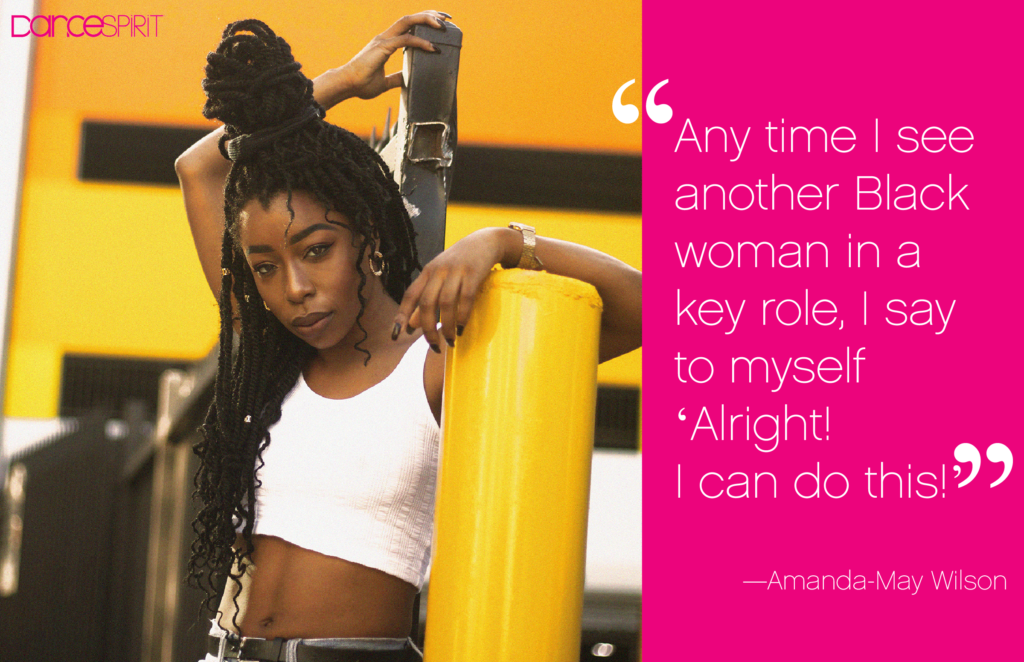
“I’m seeing them command and take ownership of themselves, and carry their work in a way that amplifies their voices, their cultural identity, their experience–and glorifies it. That reminds me that I can shift the trajectory of my emotions right now and use them to bring light to my experience.”
“When I work with young Black dancers, I can understand the pressure they may have to face because I was there at a point. I’ve had a lot of experiences that really shocked me and caught me off guard. So, I know how easy it is to curl into a ball and not want to continue, but knowing yourself and being confident in your talent despite the negativity is so important in order to continue moving forward.”
On the power of celebrating your individuality
“The ways in which Black people are presented is often so monolithic, and I think it’s caused us to believe that we are the same in so many ways, but that can distract us from praising our individuality and uniqueness. When we dig deeper, and when we immerse ourselves in ourselves, and really get to know all of our nuances, that in itself is liberation.”
“I would encourage young Black women to get to know themselves, and not fear getting into the deep nooks and crannies of their experience. Yes, you should absolutely celebrate the culture and the unity that we all feel collectively. But dive deeper into yourself so that you can understand how that culture exists because of your individuality.”
